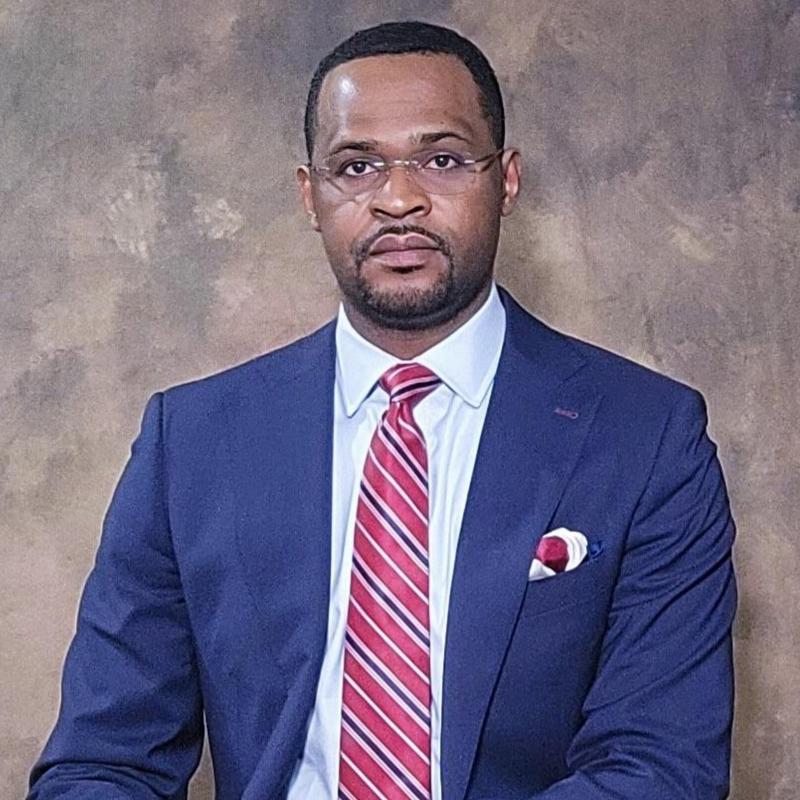Breadcrumb
Temitope (Temi) Folaranmi (MPP 2012) is the Vice President and Therapeutic Area Lead for Vaccines Medical and Clinical Affairs at GSK in the United States.
Temi is a physician by training and in his current role, he provides strategic leadership to a team of physicians, pharmacists, epidemiologists, and health outcome scientists engaging with various vaccine stakeholders to inform scientific knowledge and utilisation of vaccines for the prevention of diseases in the United States. He serves as the senior vaccines physician for GSK in the United States and scientific spokesperson for GSK Vaccines where necessary.
A member of the inaugural Master of Public Policy (MPP) class, Temi’s time on the MPP undoubtedly pushed him to build the skills that have brought him such success in public health policymaking.
“One of the things that the MPP teaches you is not just what to think about but how to think. Having that foundational training in how to think enables you to identify a problem, use principles of enquiry and reasoning in order to understand the situation and try to provide solutions.”
When Temi joined the MPP, he had recently completed a Master of Public Health degree at Harvard University. During this time, he came to realise that public health policies are being made by political leaders who very often do not have strong technical foundations in science or public health. He therefore began to see the value of studying public policy in his future career so that he could help inform public health policies based on sound public health research and data.
During the MPP, Temi enjoyed pushing himself out of his comfort zone to explore philosophy, politics, and principles of government during the foundations course. Additionally, the MPP instilled valuable practical lessons in resource mobilisation, economics and policy evaluation as well as ethical leadership, which he continues to draw upon in his career to date.
“The programme lived up to my expectations despite being in the inaugural cohort. I was impressed by the calibre of the faculty with Ngaire Woods leading as the founding dean; she had such an incredible vision for the school – to develop the next generation of global leaders who are passionate about making an impact across different sectors and addressing the critical issues of our time.”
At the same time, Temi continued exploring his interest in public health policy development and its strong connection to other sectors outside of the healthcare system. Understanding the depth and breadth of these issues made deciding where what he wanted to do after the MPP programme
“There was a lot of uncertainty about what I was going to do next and where my career would take me. But I knew I was well-equipped for whatever that next step would be, in terms of my knowledge, network and the experiences I had at the School.”
Temi went first to work for the UN Population Fund in Nigeria working on adolescent health and HIV. This experience, however, made him realise he wanted to move into a technical role where he can help use data to inform public health decisions rather than on the programme implementation side of public health policy.
In 2014, Temi was selected for the prestigious and highly competitive Epidemic Intelligence Service Fellowship at the U.S. Center for Disease Control (CDC), which brought together 70 talented and committed individuals for a two-year programme working on infectious disease control. During this time, he was involved in various outbreak response activities and supported scientific data review to inform policy recommendation for the use of two newly licensed serogroup B meningococcal vaccines in the United States. He then moved to the CDC’s Center for Global Health, working on polio eradication activities in Nigeria. Temi also had a brief stint working as a consultant on influenza surveillance with the World Health Organization regional office in the Philippines.
After this, he decided the next step in his career would be a move to the private sector, where he could use his policy and public health experience to help inform the introduction of new vaccines in various countries. He therefore took a job at Merck in 2017 as their Global Medical Director for Pneumococcal Vaccines Medical Affairs. In this role, he acted as the liaison to the U.S. Advisory Committee on Immunization Practices and led the development and execution of the company’s global medical affairs strategy for Pneumococcal Vaccines. He remained at Merck until March 2022 when he began his role as Vice President at GSK.
Have the lessons from the MPP continued to be relevant to his work? Temi opined that “the MPP enabled me to develop foundation knowledge about how to use data to inform public policy which continues to be essential for my work.”

